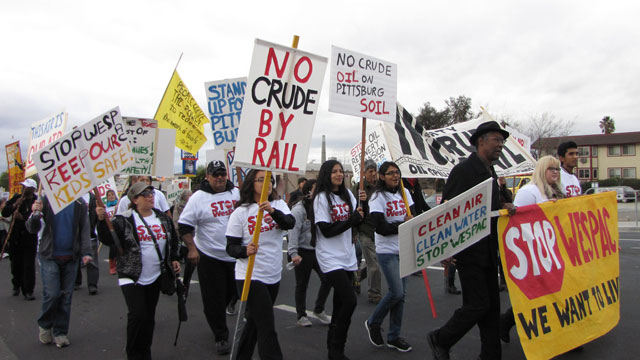
The East Bay city of Pittsburg is considering a new oil terminal, which would supply crude to Bay Area refineries. Some residents are hoping to stop the plan in its tracks.
The terminal would bring in oil via ship, pipeline and railroad. At maximum capacity, it could handle 375,000 barrels of crude a day. Local residents are concerned about the effects it would have on air and water quality, and — in light of a number of recent accidents outside California — the safety of transporting crude oil by rail.
At a rally on Saturday, about 150 people gathered to protest the project, proposed by an Irvine-based energy company called WesPac.
“We got kids, we got grandkids, nieces and nephews and young people like myself who grew up here all our lives,” said Quincy Kaisa, president of the Pittsburg Ethics Council, a group formed to fight the oil terminal. “We hope to better the future of Pittsburg, but we can’t do that if WesPac is polluting our air and our water supply.”
WesPac is proposing to re-open a marine terminal and oil storage facility that used to belong to PG&E. The company’s plan is to update the existing infrastructure and to build a new rail terminal nearby, on property that would be leased from BNSF Railway Company.